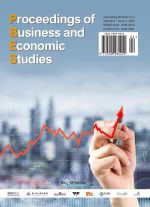Abstract
This study focuses on the construction and application of intelligent financial decision-making models driven by generative artificial intelligence (AI). It analyzes the mechanisms by which generative AI empowers financial decision-making within a dual framework of dynamic knowledge evolution and risk control. The research reveals that generative AI, with its superior data processing, pattern recognition, and autonomous learning capabilities, can transcend the limitations of traditional decision-making models, facilitating a significant shift from causal inference to probabilistic creation in decision-making paradigms. By systematically constructing an intelligent financial decision-making model that includes data governance, core engine, and decision output layers, the study clarifies the functional roles and collaborative mechanisms of each layer. Additionally, it addresses key challenges in technology application, institutional adaptation, and organizational transformation by proposing systematic strategies for technical risk management, institutional innovation, and organizational capability enhancement, aiming to provide robust theoretical support and practical guidance for the intelligent transformation of corporate financial decision-making.
References
Feng Q, 2025, New Paradigm of Management Accounting Research Driven by Artificial Intelligence. Finance and Accounting Monthly, 46(11): 31–40.
Xue L, Jiang L, 2025, Generative AI Drives the Paradigm Change of Future Industrial Innovation. Journal of the Chinese Academy of Sciences, 40(05): 820–827.
Zhao J, Dou Z, Yang H, et al., 2025, The Impact of Artificial Intelligence Technologies Represented by DeepSeek on Discipline Development: Tool Innovation and Method Integration. Journal of Beihang University (Social Sciences Edition), 38(03): 36–51.
Jiang H, Zeng W, 2025, Generative Artificial Intelligence Drives the Transformation of Educational Evaluation. Chinese Journal of Education, 2025(08): 41–48.
Wang H, Ding S, 2025, Research Progress on the Economic Impact of Generative Artificial Intelligence. Economic Dynamics, 2025: 1–18.
Liang L, Song M, 2025, Exploration of Agile Audit Mode Transformation and Practice Framework Driven by Digital Intelligence Technology. Finance and Accounting Monthly, 46(15):91–96.
Wang W, Deng Y, 2025, The Symbiotic Logic and Practical Path of Human–Machine Composite Educators. Journal of Central China Normal University (Humanities and Social Sciences Edition), 64(04): 90–99.
Tang L, Xu Y, 2025, Research on the Efficient Development Path of China’s Generative Artificial Intelligence Industry: Configuration Analysis Based on TOE Framework. Scientific Research, 2025: 1–13.
Zong S, Yang F, Long L, et al, 2025, Promote or Inhibit? The Double-Edged Sword Effect of Adopting Generative Artificial Intelligence on Creativity. Advances in Psychological Science, 33(06): 905–915.
Zheng Y, Wang Y, 2025, How Generative Artificial Intelligence Empowers High Quality Development of Science Education. Science and Society, 15(01): 18–21.
